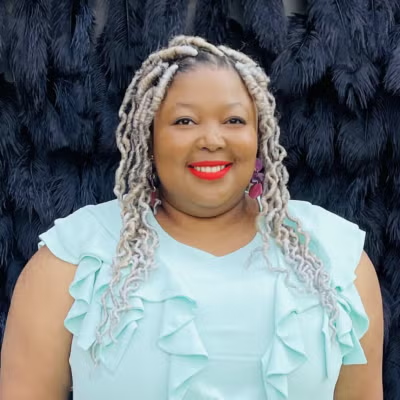A United Nations (UN) human rights expert urged students to defend health care rights against threats from global governments and courts in a Sept. 8 lecture at Georgetown University.
Dr. Tlaleng Mofokeng — the UN Special Rapporteur on the right to health and a physician from South Africa — described her experience and work for the UN and the impact pandemics have had on global health care. Mofokeng’s lecture was during a meeting of Georgetown’s “Pandemics and Politics” course, but was open to all students and faculty.

Mofokeng said low funding and lacking commitment to human rights principles impedes progress toward the universal right to health.
“We know that the realization of the right to health is impeded by many factors — and if you look around the world it’s not so much the funding or financing, but most of these factors are related to selective ignorance of human rights principles,” Mofokeng said at the lecture.
Matthew Kavanagh — director of the Center for Global Health Policy & Politics, a collaboration between the Georgetown University Law Center and School of Health — said Mofokeng was an inspiring presence to have in the classroom.
“She is a medical doctor, an OB-GYN, an activist in South Africa, an inspiring broadcaster and an author,” Kavanagh said at the lecture. “She has brought understandings of sex and gender and power into conversations around medical care for years.”
Mofokeng said she joined the UN to understand disparate health care outcomes, citing systemic racism and the history of colonization across the world.
“I wanted to adopt an anti-colonial and anti-racist analysis to why the right to health is not being realized,” Mofokeng said. “It wasn’t enough to just say there’s health indicators for polio, measles and children dying under five. In most instances, you can say, ‘We’re doing very well, but who isn’t doing well? Why aren’t they doing well?’”
Kayla Wontumi (SOH ’27), a global health student who attended the talk, said she agreed with Mofokeng’s framework and hopes to apply it to health services across the United States and worldwide.
“The Covid-19 pandemic provided a very unique lens on fractured health care systems, not only within the United States but globally,” Wontumi told The Hoya. “It revealed some of the underlying social determinants of health and some of the underlying systemic injustices that determine who receives access to Covid-19 vaccines, for example, or who receives access to essential treatments and care, and who’s able to have the right to the health care that they deserve.”
Mofokeng said one of the reasons for discrimination in health care access is private interests’ influence in health care.
“The role of the state — I think all of us kind of agree that they have obligations; they have particular responsibilities,” Mofokeng said. “But how often do we talk about non-state actors, specifically business, in health? It’s almost assumed that they have a perpetual right to profit, make decisions, set up particular schemes around health that exclude even the health practitioners such as ourselves.”
“I think in a lot of rooms, there are just far too many private sector interests and business interests, and not enough community-based leadership and people who have been people’s advocates around different health documents,” Mofokeng added.
Wontumi said she thinks private sector influences should be held accountable in health care spaces.
“Just holding them accountable for their actions and practices and their intentions is really vital to creating sustainable health systems that serve everyone equitably,” Wontumi said.
Mofokeng said global health care systems need reform and the right to health should be a priority.
“The ways in which people interact with the public health system has to be dignified, and because we know so much goes wrong, it is important to actually just talk about restoration of dignity, because I’m assuming that some of us, at some point, have had an experience that wasn’t ideal,” Mofokeng said. “The right to health is interdependent. It’s indivisible and it’s foundational.”
“I’m, of course, biased — this is my favorite human right — but it does hang all of the other human rights together,” Mofokeng added. “Without health, we have nothing.”